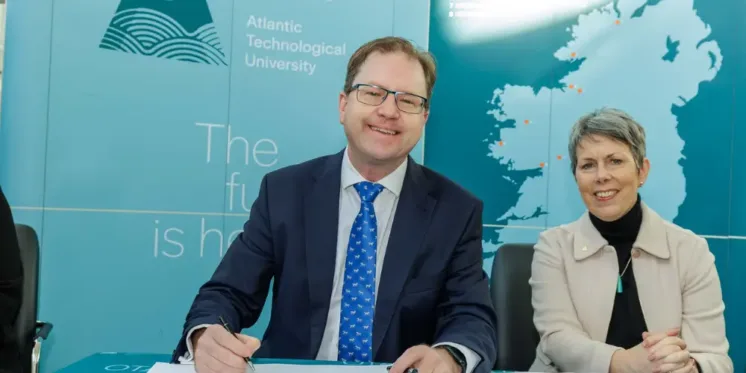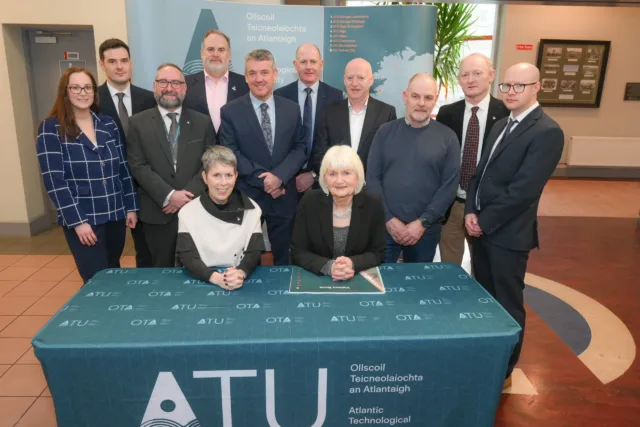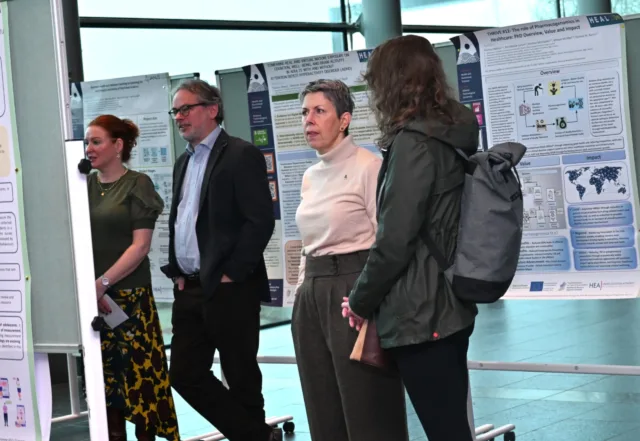Ministers Lawless and Heydon launch major expansion in veterinary education: New schools at SETU and ATU to deliver 80 new student places from 2026
Minister for Further and Higher Education, Research, Innovation and Science James Lawless TD in collaboration with Minister for Agriculture, Food and Marine, Martin Heydon TD have formally approved the capital programme supporting the Veterinary Places Activation Programme (VPAP), a major initiative that will establish two new veterinary schools at South East Technological University (SETU) and Atlantic Technological University (ATU).

Minister for Further and Higher Education, Research, Innovation and Science James Lawless TD in collaboration with Minister for Agriculture, Food and Marine, Martin Heydon TD have formally approved the capital programme supporting the Veterinary Places Activation Programme (VPAP), a major initiative that will establish two new veterinary schools at South East Technological University (SETU) and Atlantic Technological University (ATU). These projects are being developed jointly by the departments, and this approval marks a significant milestone in the expansion of Ireland’s veterinary education capacity and will facilitate the creation of 80 additional student places annually from 2026.
This announcement marks a significant step forward in expanding Ireland’s veterinary education footprint and addressing the national need for skilled veterinary professionals. This capital programme approval provides the opportunity for a design team to be appointed and to develop building designs up to planning stage.
The VPAP forms part of a wider Government investment in healthcare and veterinary education. The programme is being jointly supported by the Department of Further and Higher Education, Research, Innovation and Science and the Department of Agriculture, Food and the Marine.
Speaking today, Minister James Lawless said:
“This approval marks a pivotal moment in our commitment to expanding veterinary education in Ireland. With two new schools to be established at SETU and ATU, we will create 80 additional student places annually from 2026, opening up exciting new opportunities for students across the country to pursue careers in veterinary medicine.”
“The Veterinary Places Activation Programme is a strategic Government initiative that will deliver long-term benefits for education, the agri-food and public health sectors, and regional development. It reflects our determination to strengthen the domestic graduate pipeline, reduce reliance on overseas education, and invest in the future of Ireland’s veterinary workforce.”
Martin Heydon, Minister for Agriculture, Food and the Marine added:
“This is a hugely positive step for the agri-food sector. A strong pipeline of graduates is essential in safeguarding animal health, supporting farm productivity, and maintaining Ireland’s reputation for high-quality produce. These new schools will help ensure that our farming communities and food producers have access to the skilled professionals they need, as well as providing opportunities for students to study closer to home, benefitting our communities in these regions and throughout the country.”
Welcoming the announcement, Dr Alan Wall, CEO of the Higher Education Authority said:
“Since we launched a process in 2022 to identify opportunities in the higher education system to build capacity in Dentistry, Pharmacy, Medicine, Nursing, and Veterinary Medicine, rapid progress has been achieved across all stakeholders to expand provision. These new facilities to support expansion in Veterinary Medicine also demonstrate the commitment of our higher education and research system to one health, ensuring an integrated approach to the health of people, animals and ecosystems, locally regionally, nationally and internationally”.
President of ATU, Dr Orla Flynn, said:
“I welcome the Minister’s announcement approving the capital programme for the new veterinary facilities at ATU. This is an important step forward for our university and for the West and Northwest, expanding opportunities for students to study veterinary medicine closer to home. The investment will allow ATU to build the facilities and expertise required to deliver high-quality veterinary education and research, while also supporting Ireland’s agri-food sector and wider society. We look forward to progressing the design and planning stage and to welcoming our first students in 2026.”
President of SETU, Professor Veronica Campbell, added:
“The establishment of Veterinary Medicine at South East Technological University (SETU) marks a key strategic advancement in Ireland’s veterinary education. It will attract new talent to the South East, strengthen existing connections, foster deeper sectoral collaboration, and stimulate activity within the One Health domain, while also providing access to high-value expertise, programmes and networks dedicated to Veterinary Medicine.
“For the first time, a professional Veterinary Medicine programme will be available in the South East, positioning SETU to play a pivotal role in retaining regional talent, addressing critical workforce shortages and ensuring a strong pipeline of skilled professionals to serve Ireland’s agriculture, equine and companion animal sectors.
“Central to this vision is the delivery of a modern Veterinary Medicine programme through new state-of-the-art infrastructure on our Glassworks site, complemented by a new education facility on the site of our strategic partner, Teagasc Kildalton College.”
At full roll-out, the new veterinary schools will deliver an additional 80 veterinary graduates per year, directly supporting the agri-food sector and public health systems. Both institutions are committed to welcoming their first intake of 40 students in September 2026, with Year 1 delivered in classroom-based settings ahead of the completion of new facilities.
The two schools will adopt distinct models of delivery, with SETU implementing an innovative distributed model using a network of regionally-based clinical training facilities, and ATU developing a full clinical facility for on-campus training.
These innovative approaches build on the existing provision at UCD and reflect the Government’s commitment to diversity in higher education delivery.
The Higher Education Authority (HEA) will now work with SETU and ATU to initiate the design and planning phase.




